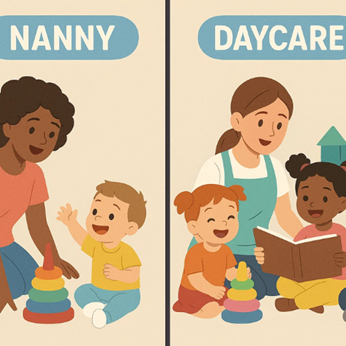Know About Vomiting In Young Children
I was attending a monthly meeting of a group of young mothers who had invited a pediatrician to talk about vomiting and diarrhea in children; most of the mothers surveyed there said their children had at least one dose of vomiting or diarrhea before the school going age. The pediatrician warned the young mothers that though it was common it was best the mothers avoided dehydration in their young children.
The pediatrician went on to tell the young mothers that the 2 main culprits of both these conditions were viral infections or bacteria attacking the intestine; vomiting could also be caused by rotavirus, a group of viruses that were passed on easily among children. It was significant to note here that though minor cases of vomiting and diarrhea cured themselves it was best to take care of young children as they were at a higher risk.
Thinking of the best way to treat vomiting especially when uncontrolled with prescription medicines as prescribed by a pediatrician; avoid using over the counter medications. Another very effective remedy would be to keep the infant or young child lying on the stomach or side as far as possible; this will help minimize the chances of him/her inhaling the vomit into the upper airways or lungs.
One of the remedies for vomiting is modification of a child’s diet; keep your child off solid foods, and encourage him/her to suck or drink small amounts of electrolyte solution, clear fluids such as water, sugar water, Popsicles, and gelatin water. This would help prevent dehydration, with liquids less likely to stimulate further vomiting.
rious complications of vomiting and /diarrhea is dehydration; this condition occurs when the normal water content of the body is reduced and there is a change in the vital balance of chemical substances like sodium and potassium. This hampers the functioning of the body and would in serious cases be life-threatening as most of the body’s cells depend on these substances being maintained at the correct levels.

Watch out for signs of dehydration in a baby or young child; thirst, dark and decreased urination, dry and flushed skin, eyes and mouth, headache, clammy hands and feet, sunken eyes, dizziness, confusion and irritation could be some of them. In babies you would notice sunken soft spot (fontanels) on top of the head.
The only solution in case of dehydration is to make the child consume enough extra fluids to restore what has been lost through throwing up. If she vomits these fluids, notify your pediatrician; you may be prescribed infant Paracetamol for fever, or fluids to avoid dehydration and good hygiene with regular hand washing to limit the spread of rotavirus. You may probably have to admit the child in the hospital for re-hydration treatment.
Finally call a pediatrician if symptoms are serious; he/she would examine your child and order blood and urine tests or X-rays to make a diagnosis. If your child looks sick, the symptoms aren’t improving with time, or your pediatrician suspects a bacterial infection, he/she may perform a culture of the stool.
Image Courtesy: Google
Take the next step toward your goals
Share your requirement and find the best care providers in your area
-
Looking for a caretaker’s job? Build your profile and get in touch with families in your vicinity.
-
Discover nannies, babysitters, cooks, housekeepers, pet sitters, and elder care under one roof.
-
Get all the support you need to run a successful care center.
-
Search for appropriate centers near you depending on your needs.
Care Corner Insights: Blog Library

Nanny vs. Daycare in Naperville, IL: What Works Best for Indian Working Couples?
Hey Naperville Parents! Balancing work and family life is no small feat—especially for Indian working couples trying to juggle careers, household responsibilities, and parenting. One of the biggest decisions you’ll face? Choosing between a nanny or

Housekeepers in Sugar Land, TX: Deep-Cleaning Checklists for Indian Homes
Housekeepers in Sugar Land, TX: Deep-Cleaning Checklists for Indian Homes Indian cooking = flavor + spices + love… but also oil splatters and stubborn stains. Time to reset! Degrease stovetops, chimneys, and exhaust fans. Scrub countertops, tiles,

12 Easy After-School Snack Ideas for Kids Who Get Hungry Quickly
School’s out, and the hunger hits hard! If your little ones come home ravenous and ready to raid the kitchen, you’re not alone. After-school snack time is prime time for refueling, recharging, and maybe even sneaking in a little nutrition. So here ar

Vegetarian Home Cook Services in Sunnyvale, CA: North & South Indian Meal Prep for Busy NRIs
Between work, family, and daily responsibilities, finding time to cook fresh meals can be difficult. That’s when a vegetarian home cook service in Sunnyvale makes life easier—bringing authentic North and South Indian dishes straight to your table. T

Hiring a Live-In Nanny in Plano, TX: A Practical Guide for NRI Households
For NRI families living in Plano, TX, raising children while managing work and household responsibilities can feel overwhelming. Many parents find that hiring a live-in nanny provides the right balance of support, convenience, and cultural comfort. U

Daycares in Fremont, CA for Indian Toddlers: Curriculum, Food Policies & Waitlists
You’ve probably met them — the parents at the park chatting about Montessori vs. play-based learning while handing their toddler a homemade paratha. The ones who ask every daycare in Fremont if they serve vegetarian meals. And yes, the ones who have

Babysitters in Jersey City, NJ for NRI Parents: Last-Minute, Weekend & Evening Options
You’ve probably seen them — the parents juggling grocery bags in one hand and a phone call to grandma in India in the other, while trying to keep their toddler from running into the road. The ones who cancel dinner plans because the babysitter bailed

Best Nanny Services in Edison, NJ for Indian Families: Costs, Language, and Cultural Fit
Edison, NJ, is home to one of the largest Indian communities in the U.S., and finding a nanny here often means looking for more than just childcare skills. For Indian families, cultural understanding, language fluency, and traditional values play a b

What Is Helicopter Parenting? How It Affects Children and Ways to Avoid It
You’ve probably seen them. The parents at the playground who shadow every move, wiping invisible germs off the slide before their child touches it. The ones who fill out job applications for their teens. And yes, the ones who email college professors

Are Weighted Blankets Safe for Children? Pros and Cons Explained
Weighted blankets have become a cozy trend in recent years. From helping adults sleep better to calming anxiety, they’ve earned a spot in many households. But when it comes to kids, especially the little ones, parents often ask: Are weighted blankets